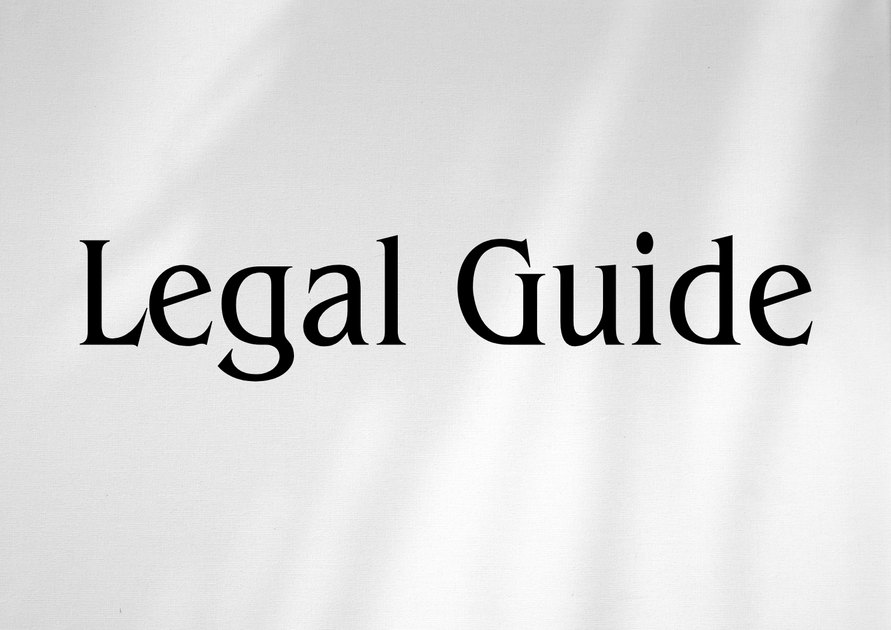Introduction
In today’s interconnected Middle Eastern economy, the intricacies of contract law remain a central concern for businesses with cross-border operations. As Saudi Arabia rapidly modernizes its commercial legal framework and the UAE implements sweeping legal reforms—such as Federal Decree-Law No. 50 of 2022 (the new UAE Commercial Transactions Law)—understanding the legal implications of a contract breach in neighboring jurisdictions is more crucial than ever. For UAE-based companies, human resource managers, legal practitioners, and executives engaging in business with Saudi counterparts, these developments signal significant transformation in risk management, dispute resolution, and compliance requirements. This expert article offers an authoritative analysis of breach of contract under Saudi Arabian law, drawing practical comparisons with the UAE’s latest legal updates, and providing strategic guidance to ensure your organization remains compliant and proactive in a dynamic legal environment.
Table of Contents
- Saudi Arabia’s Legal Framework on Breach of Contract
- Comparing Contract Law: Saudi Arabia and UAE 2025 Updates
- Key Provisions of Saudi Arabian Contract Law
- Legal Consequences of Contract Breach in Saudi Arabia
- Practical Examples and Case Studies
- Risk Management and Compliance Strategies for UAE Businesses
- Impact of Legal Reforms and Future Outlook
- Conclusion and Best Practices
Saudi Arabia’s Legal Framework on Breach of Contract
Saudi Arabia’s approach to contractual obligations is rooted in Sharia principles, with increasing influence from modern commercial regulations. Central to these is the Saudi Civil Transactions Law (2023), recently enacted to codify longstanding principles and harmonize with the kingdom’s Vision 2030 goals. The law, together with prior sources such as the Commercial Court Law (Nizam al-Mahakim al-Tijariyya), forms the backbone for contractual relations, addressing rights, duties, enforcement, compensation, and remedies for breach.
Importance for UAE Businesses
With the UAE’s legal landscape swiftly evolving—highlighted by the UAE Federal Decree-Law No. 50 of 2022—businesses operating regionally are increasingly exposed to both compliance opportunities and challenges. Grasping Saudi Arabia’s contract enforcement regime is vital for:
- Risk Assessment: Anticipating potential liabilities in partnership or joint-venture agreements.
- Dispute Prevention: Structuring robust cross-border contracts that withstand both common law and Sharia-influenced scrutiny.
- Regulatory Adaptation: Responding to the UAE’s push towards international commercial best practices, especially for employees, finance, and supply chain managers.
Comparing Contract Law: Saudi Arabia and UAE 2025 Updates
Both Saudi Arabia and the UAE have initiated landmark reforms in their commercial legal systems. The table below highlights critical differences and alignments between the updated regulatory environments. Visual placements (chart below) amplify understanding of risk and compliance trajectories.
| Aspect | Saudi Arabia (Civil Transactions Law 2023) | UAE (Federal Decree-Law No. 50 of 2022) |
|---|---|---|
| Foundation of Law | Primarily Sharia, with codification | Civil code based, influenced by international standards |
| Enforceability | Contracts must not contravene public order or Sharia | Liberalized; focus on parties’ intent and commercial reasonableness |
| Breach Consequences | Specific performance prioritized; financial damages for proven loss | Compensation may include direct and indirect losses (Art. 124–130, Decree-Law 50/2022) |
| Defenses | Force majeure, impossibility, duress, mistake | Force majeure, impossibility, good faith, economic hardship |
| Remedies | Rescission, amendment, damages | Rescission, amendment, penalties, liquidated damages |
| Judicial Precedent | Limited, more statutory and religious interpretation | Case law grows under federal courts; international arbitration recognized |
| Dispute Resolution | Civil/Commercial Courts; increasingly arbitration-friendly | Federal Courts, Abu Dhabi Global Market & DIFC courts, arbitration (New York Convention signatory) |
Key Provisions of Saudi Arabian Contract Law
Formation and Validity
Contracts in Saudi Arabia are recognized if formed between competent parties, with lawful subject matter, clear terms, and mutual consent—provided they do not violate Sharia principles. Certain contractual terms, such as those involving interest (riba), are strictly prohibited.
Obligations and Performance
Both parties must fulfill their obligations in good faith. Non-performance—whether partial or total—can arise from delays, incomplete work, or failure to deliver the agreed benefit.
Grounds for Breach
- Non-performance: Failure to deliver on stipulated terms or timelines.
- Improper Performance: Delivery of substandard goods or services.
- Repudiation: One party’s clear intent not to perform.
Remedies Available
Saudi courts prioritize specific performance—compelling the defaulting party to fulfill their contractual duties—unless impossible. Where compensation is appropriate, damages cover the actual, proven harm, and speculative or punitive damages are generally not awarded. Rescission is permitted if the breach deprives the innocent party of the contract’s principal benefit.
Legal Consequences of Contract Breach in Saudi Arabia
The repercussions of breaching a contract in Saudi Arabia, under the new Civil Transactions Law, are multifaceted. This section outlines the principal legal risks, supported by practical commentary shaped by recent UAE experiences with similar reforms.
Court-Ordered Performance
Where possible, the primary remedy is court-ordered performance. For example, in real estate sale contracts, the court may order transfer of title rather than mere damages.
Pecuniary Damages
Compensation is typically limited to direct losses that are a “natural consequence” of the breach, reflecting the principle of certainty. Loss of profits or consequential damages are allowed only when:
- They are expressly foreseen by the parties in the contract
- They are quantifiable with reasonable certainty
Damages are not awarded for moral injury in commercial cases.
Rescission and Contract Termination
If a fundamental breach occurs—e.g., the core contractual benefit is lost—courts may rescind or terminate the contract, restoring the parties as much as possible to their pre-contractual positions.
Limitations and Defenses
- Force Majeure: Saudi courts may excuse performance when unforeseeable, uncontrollable events (e.g., pandemics, natural disasters) render performance impossible.
- Mitigation: Damages will be limited if the non-breaching party failed to take reasonable steps to reduce their loss.
Administrative and Criminal Consequences
For sectors governed by special regulations (e.g., labor, procurement, construction), breaches may attract additional penalties, such as blacklisting, suspension from government tenders, or administrative fines. In rare cases, fraudulent contractual conduct can lead to criminal liability.
Practical Examples and Case Studies
Case Study 1: Delayed Delivery of Goods
A UAE trader contracts with a Saudi manufacturing firm to supply custom machinery by a fixed deadline. The manufacturer delays delivery by 90 days due to supply chain disruptions.
- Saudi Law Application: Court examines whether the delay qualifies as force majeure; in its absence, the buyer may rescind or claim direct damages equaling additional costs to source elsewhere.
- UAE Law (Decree-Law 50/2022 Implications): UAE would assess if indirect losses (lost production profits) are also compensable, if such risks are contractually stipulated and quantifiable.
Case Study 2: Failure to Pay for Services
A Dubai consulting company provides HR training for a Riyadh-based corporate client. The client fails to pay on time, citing internal approvals as a reason.
- Saudi Law Application: Consultant may seek full payment, possibly with a claim for direct interest (if not prohibited). Court enforces obligation where performance (payment) is possible; interest unlikely unless expressly permitted by law, considering Sharia constraints.
- UAE Law: The new UAE Commercial Transactions Law recognizes late payment interest (subject to certain rate caps), aligning with international practice.
Case Study 3: Termination of Construction Contract
A UAE-headquartered construction company is contracted to build a commercial complex in Jeddah. After significant delays attributed equally to both parties, the project stalls.
- Saudi Law Application: Courts may apportion losses based on comparative fault; partial rescission or adjustment of compensation is possible under principles of equity.
- UAE Law: New provisions favor amicable dispute resolution and enforce clear liquidated damages provisions.
Visual Suggestion: Penalties Comparison Chart
Best Practice: Insert a comparative penalties chart visually mapping typical monetary awards, enforcement timelines, and sector-specific administrative actions under Saudi and UAE law.
Risk Management and Compliance Strategies for UAE Organizations
Top Legal Risks of Non-Compliance
- Unenforceable Contract Terms: Inclusion of interest clauses or terms in contradiction of Sharia may render agreements void or unenforceable in Saudi courts.
- Lack of Evidence: Saudi practice places significant emphasis on documentary evidence; oral agreements, unless corroborated, are difficult to enforce.
- Unclear Dispute Clauses: Absence of a governing law or arbitration clause can default disputes to local Saudi courts, creating uncertainty for UAE-based parties.
Compliance Checklist for Businesses
| Requirement | Best Practice |
|---|---|
| Governing Law | Clearly specify either UAE or Saudi law; deliberate selection is essential |
| Dispute Resolution | Include detailed arbitration/mediation clauses; consider ICC, DIFC, or regional mechanisms |
| Sharia Compliance | Eliminate riba, gharar (ambiguity), and non-compliant penalties from agreement |
| Force Majeure | Draft expansive but precise clauses with local legal counsel input |
| Proof of Performance | Ensure robust documentary records of obligations, communications, and changes |
Consultancy Recommendations
- Engage qualified legal advisors in both UAE and Saudi Arabia for contract drafting and review
- Train HR and compliance teams on the unique risks of operating under dual legal systems
- Review and update all ongoing Saudi business contracts as part of annual compliance audits, in light of recent legislative changes
Impact of Legal Reforms and Future Outlook
Saudi Arabia’s Civil Transactions Law and the UAE’s 2022–2025 commercial law updates are ushering in a new era for regional cross-border commerce. The ongoing modernization of commercial dispute procedures, increased acceptance of arbitration, and clearer articulation of damages are creating a more predictable legal environment for UAE businesses expanding into Saudi markets.
Key Emerging Trends
- Greater Alignment: Both jurisdictions are moving towards internationally recognized contract enforcement standards, though local nuances remain key.
- Digital Evidence: Electronic contracts and communications are increasingly recognized in both judicial systems, streamlining dispute resolution but also raising new compliance issues.
- Sectoral Regulation: Enhanced specialization in sectors such as construction, technology, and government procurement will drive tailored contract and penalty regimes.
Visual Suggestion: Compliance Process Flow Diagram
Best Practice: Place a step-by-step visual guide showing a typical breach dispute progression—from contractual negotiation, through notice, mediation/arbitration, to enforcement—highlighted for both jurisdictions.
Conclusion and Best Practices
In an environment marked by legal transformation, the risks and rewards of doing business across the UAE and Saudi Arabia demand precise, up-to-date legal navigation. Key takeaways from this analysis include:
- Both Saudi and UAE law prioritize performance and compensation but differ in the scope of allowable damages and methods of enforcement.
- Contractual clarity, proactive dispute resolution mechanisms, and rigorous compliance protocols are essential to minimize cross-border risk.
- With increasing convergence towards international best practices, businesses have greater certainty but must still heed local legal sensitivities—especially regarding Sharia compliance in Saudi contracts and the expanded compensation regimes under UAE’s 2025 updates.
We strongly advise organizations to:
- Seek comprehensive legal consultation for every cross-border contract, leveraging expertise in both jurisdictions
- Implement regular compliance audits aligned to the latest statutory changes
- Invest in legal training for commercial, HR, and in-house counsel teams operating in or with Saudi entities
This proactive approach will enable businesses not only to avoid costly disputes and penalties but to capitalize on the growing harmonization of commercial law in the GCC. If you require tailored advice, our joint team of UAE and Saudi legal experts stands ready to assist with contract negotiation, drafting, enforcement, and dispute resolution guidance under all updated statutes.




